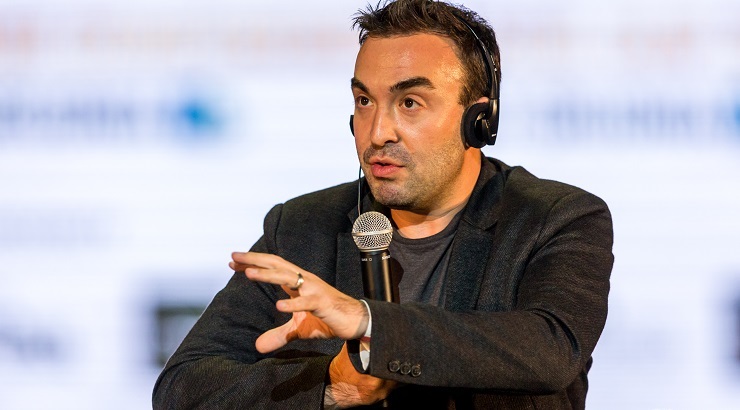Soccer Players Need To Have Matchday Objectives
Advanced Psychology Techniques for Footballers – Global sport psychologist and author specializing in soccer, Dan Abrahams is based in England and has helped hundreds of professional soccer players – many of them who play in the English Premier League (EPL). Recently helping a Crystal Palace player succeed on the field, Abrahams has held contracts with QPR, Fulham, and West Ham United among other clubs and works quietly, behind the scenes with many coaches from top clubs across the Atlantic. Abrahams is a columnist for SoccerToday and wants to share his expertise on player development with our readers.
DAN ABRAHAMS ON WHAT SOCCER PLAYERS NEED TO KNOW
Over the next couple of months SoccerToday has invited me to talk a little about each chapter of my new book, Soccer Tough 2. These exclusive articles also give me the platform to expand on the contents of each chapter, providing you, the reader, with plenty of new philosophies, tools and techniques to play your very best soccer in 2016.
 What Soccer Players Need To Know
What Soccer Players Need To Know
You cannot force a great game. You cannot force a win. Performances are often made or broken in the lead up to a match. A soccer player’s mindset before the game is as important as it is during the competition itself.
Here are tips from a soccer expert with years of experience working helping top professional soccer players be their best.
So let’s make this simple and clear – your goal for a game of soccer is to go and execute your process.
The WIN: Performance and outcome will take care of themselves if you execute properly.
Here are some examples of the process:
Goalkeeper Process
- Vocal at all times
- Get into set position quickly
- Aggressive in the air
Defender Process
- Stand winger up
- Always show the outside
- Body shape on corners
Midfielder Process
- Quick to close down (cut off space)
- Strong in every challenge
- Play head up (spot the gaps)
Believe it or not a good performance can be shattered before a soccer player sets foot on the pitch. In fact it a terrible performance can begin on the Wednesday before a Saturday game. It can begin on the Thursday before a Sunday game. It can even begin five or six days before kick-off.
This is how I open chapter seven of my new book Soccer Tough II. It’s the first chapter of section two – a section that provides you with vital mental tools that will help you to prepare to play.

Your Matchday Objectives
World-class preparation begins with knowledge.
What do you have to do to do give yourself the very best chance to compete at our peak?
How can a soccer player’s terrible on field performance in a game be impacted by — or be the result of — what happens in the days before the match?
Easy. This is because the onset of destructive emotions such as anxiety, frustration, anger and despondency that can be experienced on matchday have their origins in the objectives a player sets for him or herself. What you are trying to achieve in a match plays a massive part in influencing the thoughts you have on the pitch, the feelings that you experience and the performances you deliver. The targets you set yourself matter. And so often the goals players set themselves are, unbeknown to them, destructive ones.
Chapter eight of my new book Soccer Tough II seeks to educate players about the most effective way to set match objectives.
From Soccer Tough II:

Have a think about the kind of goals and objectives you can set yourself. Let me tell you about some of the ones I hear regularly.
“I want to win”
“I want to score”
“I want to keep a clean sheet”
“I want to play my best”
“I want to complete all my passes”
These are the kind of targets that the professional players I work with tell me when I first meet them. I admire them. These statements are a sign of competitiveness. They demonstrate a soccer player’s want and will. They are the type of objectives that TV commentators would have us believe bear the hallmark of champions. Winners want to win right? They want to be at their best yes? They ache for maximum points, lots of goals for and few goals against.
But despite my respect for these goals I don’t believe they are the best objectives to set. In fact they can be destructive to the ambitious footballer.
The kind of objectives that so many soccer players declare important tend to be outcome and performance based. And here’s the problem – outcome cannot be controlled, and nor can performance.
Winning, scoring goals, playing at your best and keeping clean sheets – these will take care of themselves. You can’t control them and you don’t need to worry about them. You can’t force them and they don’t need to play on your mind. Being concerned can cause you to play tight, tense and timid. These objective can create anxiety – specifically doubt and worry. They can trigger the first drips of despondency. You don’t need to focus on them.

So what kind of objectives should you set yourself? Goals that revolve around the process. What do I mean by this? The process is the how of performance. It refers to the characteristics, attitudes, behaviours, actions and ways of thinking that drive performance.
The process can be as simple or as complex as you like. It can be one word or it can be a series of short sentences, and it must be specific to you – your strengths, areas you want to improve, and the responsibilities within your role.
Back to Soccer Tough II:
What do the plays in these scripts have in common? They are all related to the characteristics, behaviours and ways of thinking that help players execute the responsibilities within their role. But most crucially they are controllable. There are no plays that rely on external factors that are out of a soccer player’s control.
And these are the best possible objectives to have. The matchday equation is simple. Focus on executing your processes and the performance will take care of itself. So will the outcome.
Related Articles: Dan Abrahams on SoccerToday







